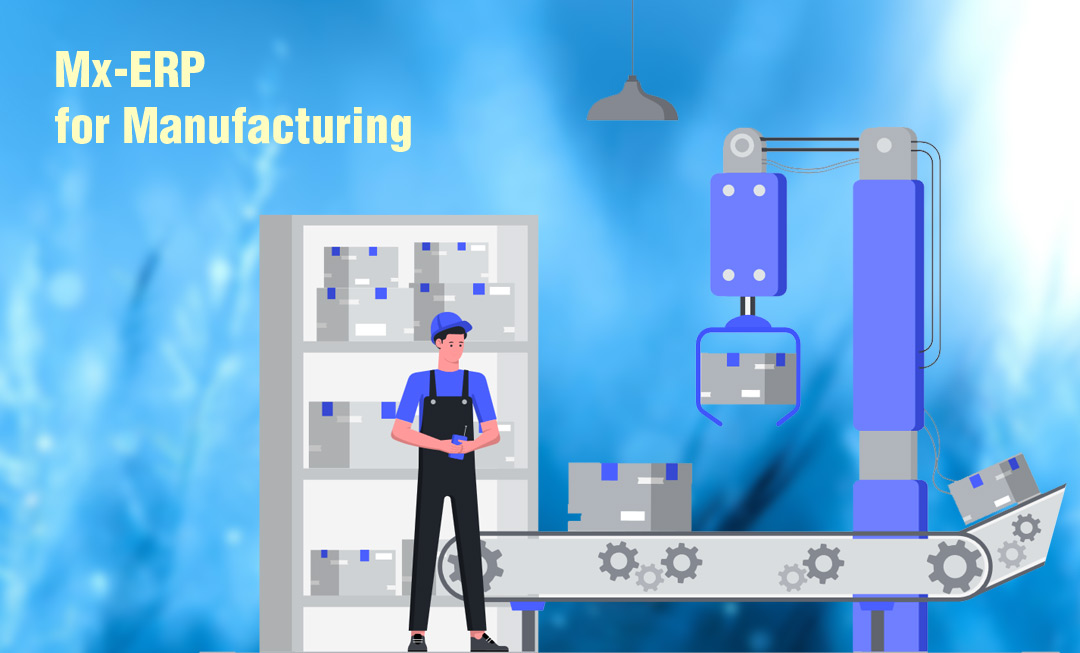
In this article, we'll be discussing the benefits of using manufacturing ERP modules. You'll learn how these modules can help improve your production process and make it more efficient. We'll also touch on some of the key features that you should look for in a manufacturing ERP system.
What is an ERP module?
An ERP module is a software application that is part of an enterprise resource planning system. ERP systems are used by organizations to manage and automate their business processes.ERP modules typically address specific business needs, such as accounting, human resources, or customer relationship management. Each module is designed to work with other modules in the system to provide a complete solution for the organization.
Benefits of using ERP modules include:
- Improved efficiency and accuracy of information
- Increased visibility into organizational data
- Ability to make better-informed decisions
- Improved customer satisfaction
- Reduced costs
The benefits of manufacturing ERP modules
The benefits of manufacturing ERP modules are many and varied, but all center around one key idea: improving efficiency and productivity in the manufacturing process. By automating and integrating key manufacturing processes, ERP modules can help streamline production, reduce costs, and improve quality control. In addition, by providing real-time data visibility across the entire manufacturing process, ERP modules can help identify areas of potential improvement and allow manufacturers to make more informed decisions about where to allocate resources. Ultimately, the goal of any ERP system is to help manufacturers operate more efficiently and effectively, and manufacturing ERP modules are a critical part of achieving that goal.What are the different types of ERP modules?
There are a number of different types of ERP modules, each of which offers its own benefits to manufacturing businesses. The most common modules include:- Inventory management: This module helps businesses keep track of their inventory levels so that they can better manage production and avoid stockouts.
- Production planning: This module helps businesses plan their production schedules so that they can better meet customer demand and avoid disruptions.
- Quality control: This module helps businesses track and improve the quality of their products so that they can maintain a high level of customer satisfaction.
- Warehouse management: This module helps businesses optimize their warehouse operations so that they can reduce costs and improve efficiency.
How to implement a manufacturing ERP module
ERP modules for manufacturing are beneficial for a number of reasons. They can help to optimize production processes, improve quality control, and increase efficiency and productivity. In addition, they can help to track and manage inventory levels and provide visibility into the supply chain. Implementing a manufacturing ERP module can be a complex and challenging process, but the benefits are well worth the effort. Here are some tips on how to get started:- Define your goals and objectives. What do you hope to achieve by implementing a manufacturing ERP module? Be clear about what you want to accomplish, and make sure that all stakeholders are in agreement.
- Do your research. There are many different types of manufacturing ERP modules available on the market. Take the time to evaluate your options and choose the one that best meets your needs.
- Work with a partner. Implementing an ERP system is a big undertaking. Working with an experienced partner can help to ensure a smooth and successful implementation process.
- Train your staff. Once you have chosen and implemented a manufacturing ERP module, it is important to train your staff on how to use it effectively. Make sure that they understand all of the features and functionality, and that they are comfortable using the system.
- Monitor and adjust. Be sure to monitor the performance of your manufacturing ERP module after it has been implemented. Make adjustments as necessary to ensure that it is meeting your expectations.
Conclusion
In conclusion, the benefits of using manufacturing ERP modules are many and varied. They can help to optimize production processes, improve quality control, and increase efficiency and productivity. In addition, they can help to track and manage inventory levels and provide visibility into the supply chain. Implementing a manufacturing ERP module can be a complex and challenging process, but the benefits are well worth the effort.There are a number of different types of ERP modules, each of which offers its own benefits to manufacturing businesses. The most common modules include inventory management, production planning, quality control, and warehouse management. Implementing a manufacturing ERP module can be a complex and challenging process, but the benefits are well worth the effort.